A look inside the Israel Cycling Academy with Head Director, Zak Dempster
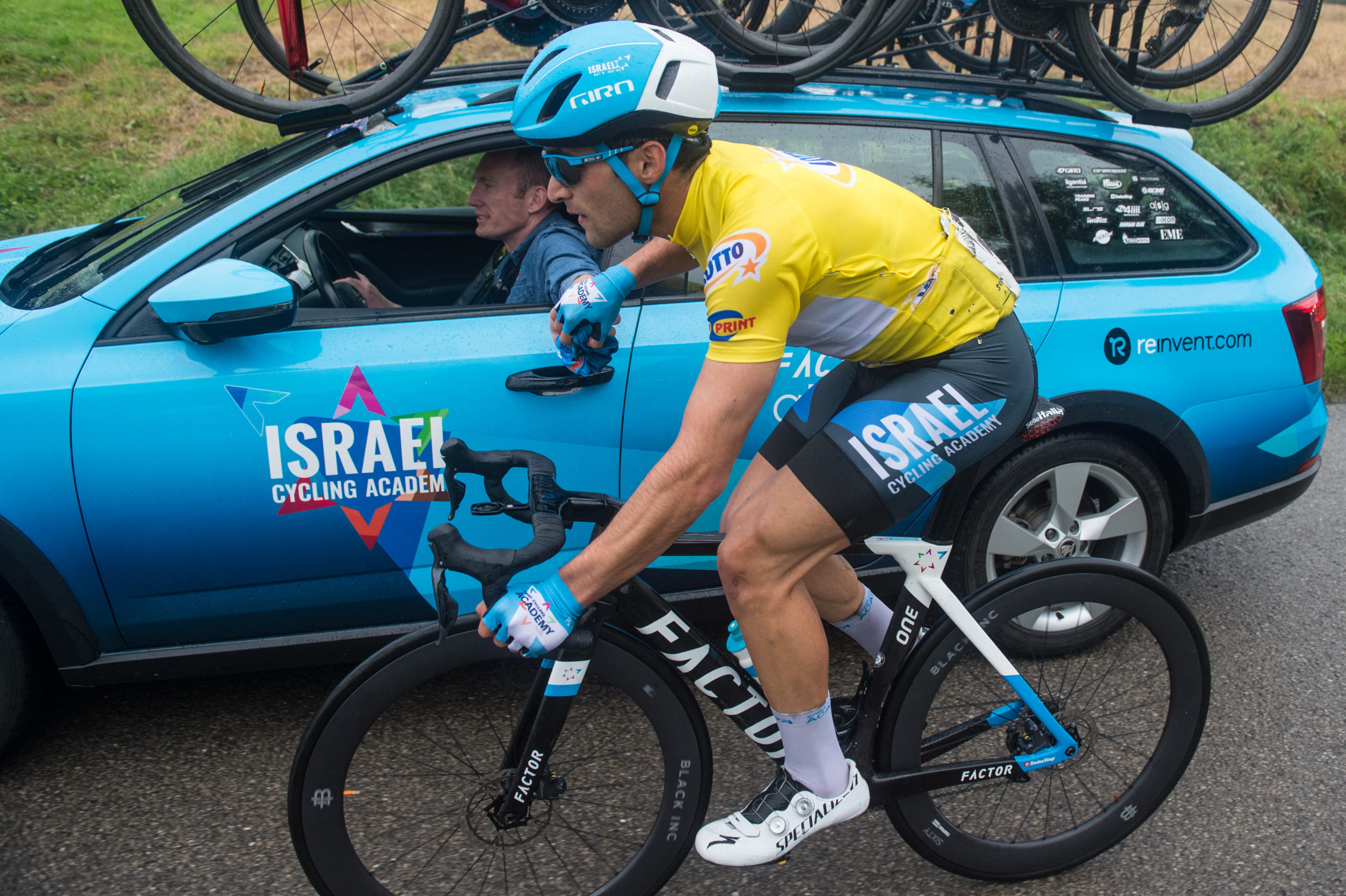
Since transitioning into the World Tour this year as Israel Start-Up Nation, the pro-continental team, Israel Cycling Academy have now turned their full focus towards the development of young and talented riders, with the long term goal of assisting them to take the next step to pro-tour level.
The fifteen rider international squad comprised of eight Israeli riders, three Canadians, one Australian, a Swede/Ethiopian, Czech and a Colombian create quite a dynamic team from all over the world, contributing varying strengths, abilities and levels of experience.
In a normal season, the majority of the team are predominantly based out of Girona, Spain where the team’s service course and staff are located, so equipment can be easily accessed and the riders have a great support network around them for training, and preparing at best for events Europe-wide.
Recently retired former professional cyclist of fourteen years, Zak Dempster spent his final three seasons of racing with the Israel Cycling Academy and as of the start of 2020, has transitioned into the role of Head Director of the pro-continental team.
With ample experience, Zak is playing a pivotal part in the development, training and directing of the young, aspiring team and has so far found his new career path and opportunity to remain within the organisation, incredibly fulfilling.
We recently had a chat with Zak to gather some insight into his transition from racing, to directing. He goes on to discuss the team’s current ambitions, long term goals and a bit about the Factor ONE’s they’re riding…
WORDS BY ZAK DEMPSTER
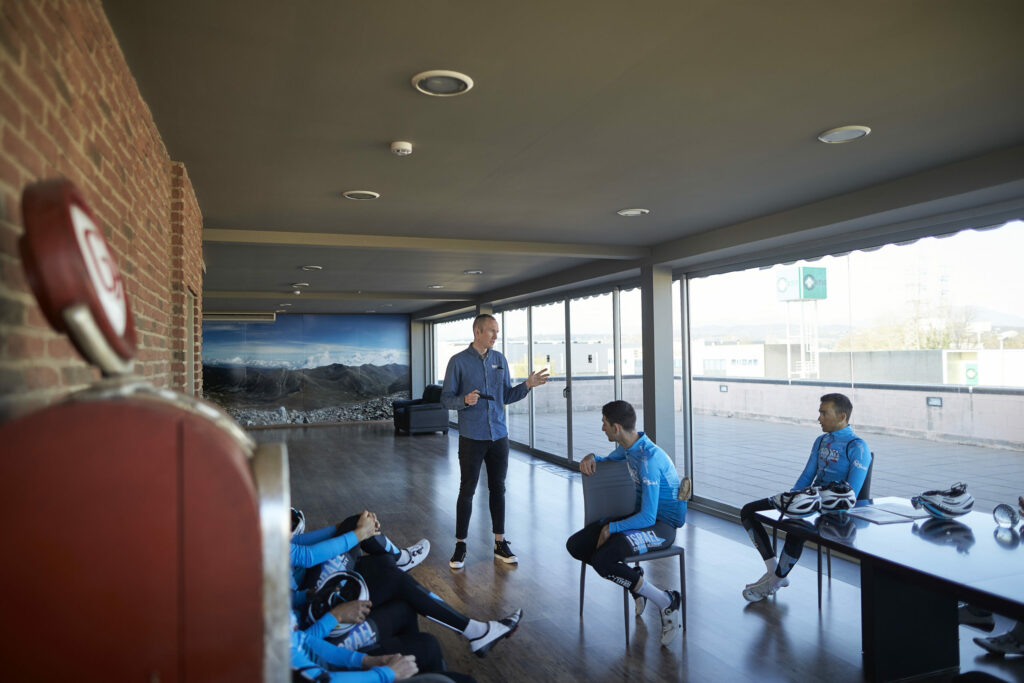
The Transition
I’ve been part of the team for the last three years and felt really at home – more at home than any other place in my career.
Last year, when I started looking at options, I wasn’t at the point where I was down on racing. I was still really enjoying it and having one of the better years of my career. Still, when the team approached me and asked if I’d be interested in taking the next step in my professional career, I honestly didn’t have to think long. Being a cyclist was great, and I got so much out of it, but what I wanted was for that phase of my life to be the beginning of an equally exciting next chapter.
Being a Director, I feel I can help and influence the young guys so they can get the best out of themselves and experience what I was able and lucky enough to do as a rider.
It’s such a valuable and rewarding profession being a rider, but as a Director now, I’m discovering this whole new level to it, so I actually couldn’t be happier.
I also don’t really miss riding, which is a weird thing. As long as I can get outside and go as hard as I can, exercising for half an hour every day, my brain can function. Rather than a health thing, exercise for me now is just getting in the forest and going full gas. In contrast, sometimes as a rider, you’re just dreading those efforts, and ok, yes – it’s another level, but now I’ve found another relationship with sport.
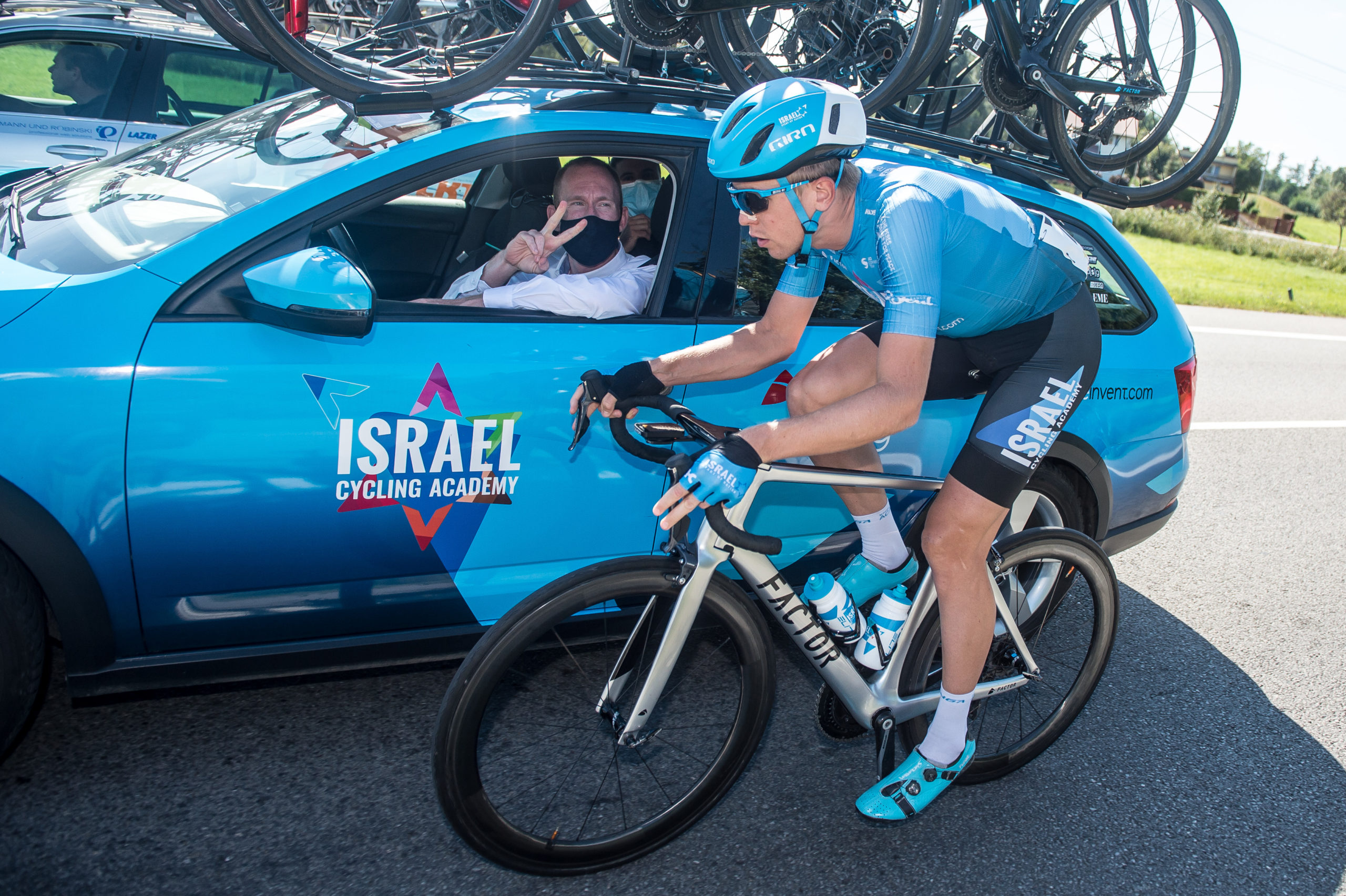
How being a professional rider has helped step into Director role…
Whenever you start anything new, you always want to be treated how you would have liked to have been treated. Sometimes for me, it’s giving the riders hard truths, and sometimes it’s trying to acknowledge and practice empathy.
Being a rider was also my trajectory to finally being part of a pro-continental team and doing Grand Tours and Classics. I had to be quite reflective and self-sufficient throughout my career because I was on different teams in a number of different countries, there’s no one really telling you what to do or where to go.
I had good people around me throughout, and people who were incredibly pivotal at certain times. If you look back to when I was in England in 2009, it could have gone either way, and then I went to Rapha, and I was around John Herety and people that assisted with taking my career to another level.
So I strongly believe the right person at the right time in anyone’s career can have such a pivotal effect. Of course, I’m not going to be that pivotal person for everyone, or maybe I’m just a pain in the neck sometimes! But for me, finding those people you can try to help and understand the processes is probably the most rewarding part of it all so far, even though I’ve only been doing it a little while.
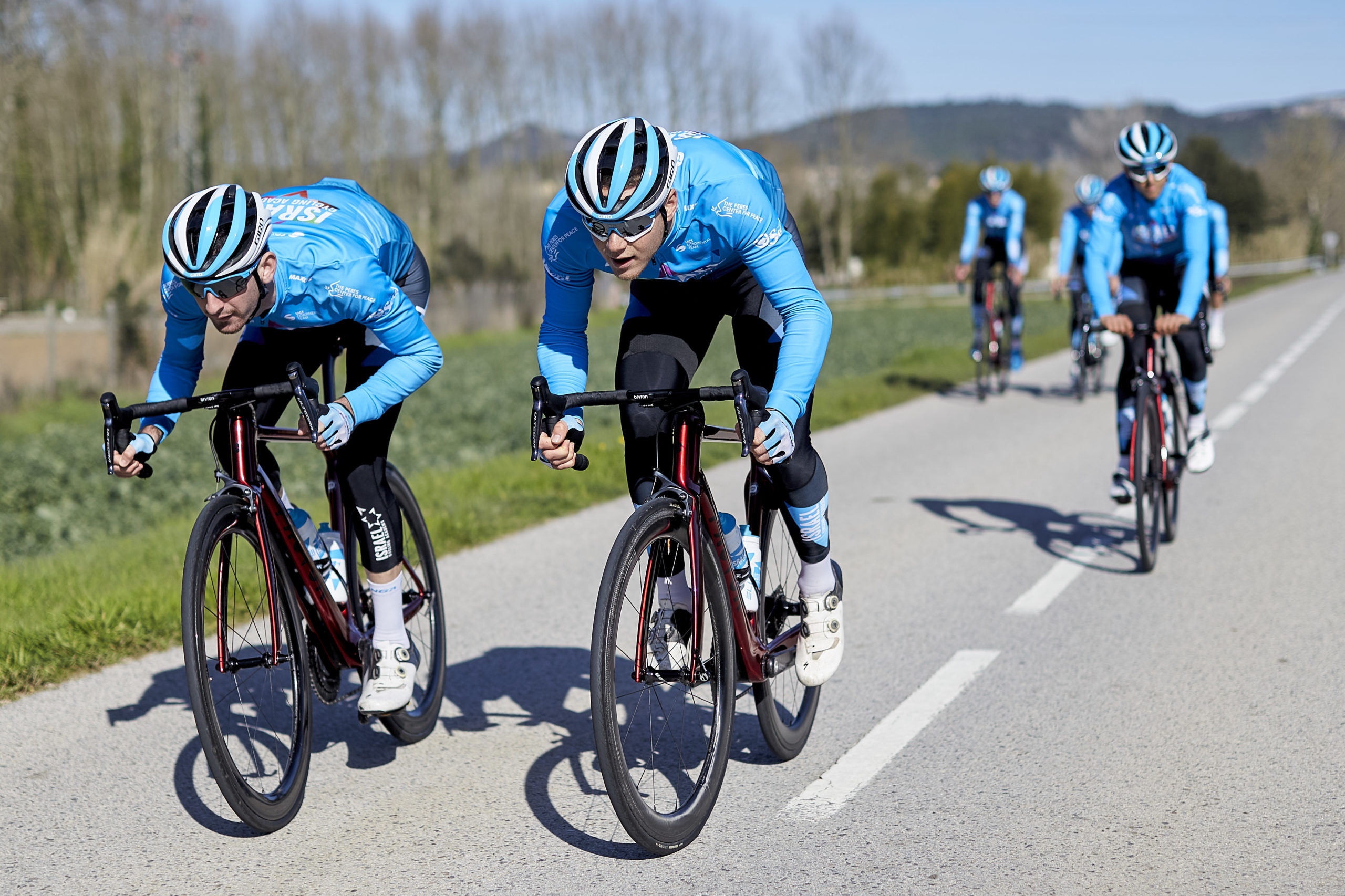
Coaching
I coach a few guys within the team and sometimes work with the performance manager on their training blocks. For example, we recently had a group of guys in Girona doing a very specific block for ten days, so I’d be out on the bike doing motor-pacing most day’s and would also go to testing’s with some guys. On more critical session days, some of the riders work with their own coaches, but we’re still working behind the scenes to ensure that their loading’s up to scratch to meet the level of a world-class U23. Or for the more mature guys, if something’s out of place, we’ll come up with and suggest a number of different training options they can test, to try to break that ceiling that they may have developed in previous seasons.
So I’ve done a little bit of time in the background there, and then If I see anything that needs addressing or could be bettered, then we reach out and we try to do it in a democratic way. Most of the time!
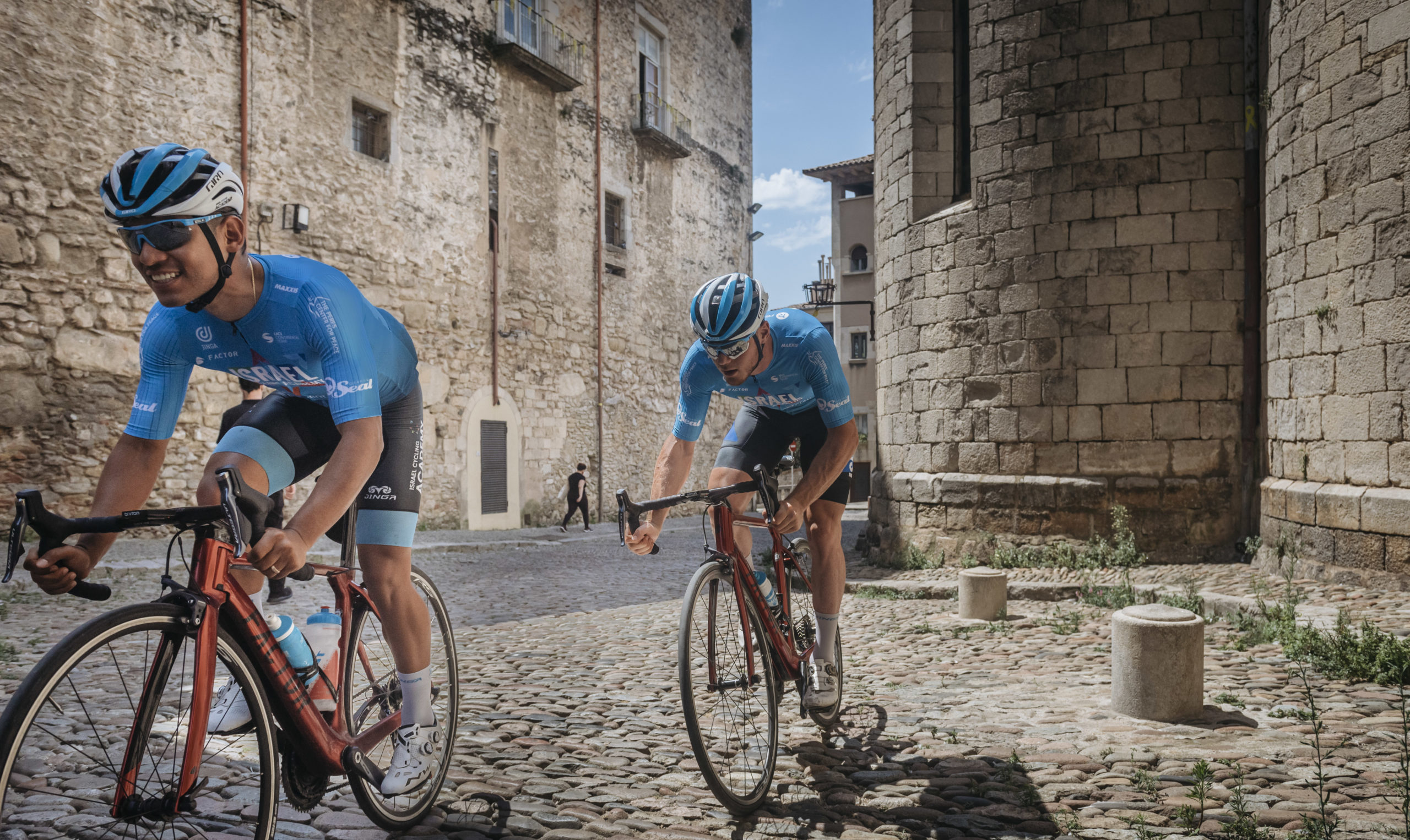
Girona
We have a team apartment in Girona, but not everyone stays there year-round. Currently, we have six of our Israeli riders staying in Girona, where they have access to the team’s facilities and training support. At the same time, we have three Canadians and Freddie Ovett from Australia who live in Girona full time. Daniel Turek lives at his home in Czech Republic, and then there’s our Colombian, Edwin Ávila, who stays there when he’s in Europe. Lastly, Awet Gebremedhin is based between Sweden and Ethiopia but is currently with Girona’s team for a training-race block.
We’ll focus a lot of our time and budget on training support and hands-on interactions in the future. When the riders are ‘home’ between events, that’s when the race results are made, and they’ll arrive at the races at the right time, highly motivated.
I’ve learned with young people, especially that you have to be there to see it day-to-day, which people miss when they turn professional. Or they might be on a team where they get that at one point and then turn pro, and all of a sudden there’s little bit less support as they’re on the other side of the world. So we’re just trying to create a support network and, at the same time, not be there babying them.
Everyone who’s ridden in Girona has had to walk their bike bag across town in the middle of the night after a shitty bus ride from Barcelona at some point. That’s all part of it, and they’ve still got to go through that. But at the same time, we’ll be there when its critical and on the days where the differences are made between making it or not making it.
We’re just trying to create an environment where riders can reach their potential and be culturally exposed to riders from other countries and be able to see things from a different point of view.
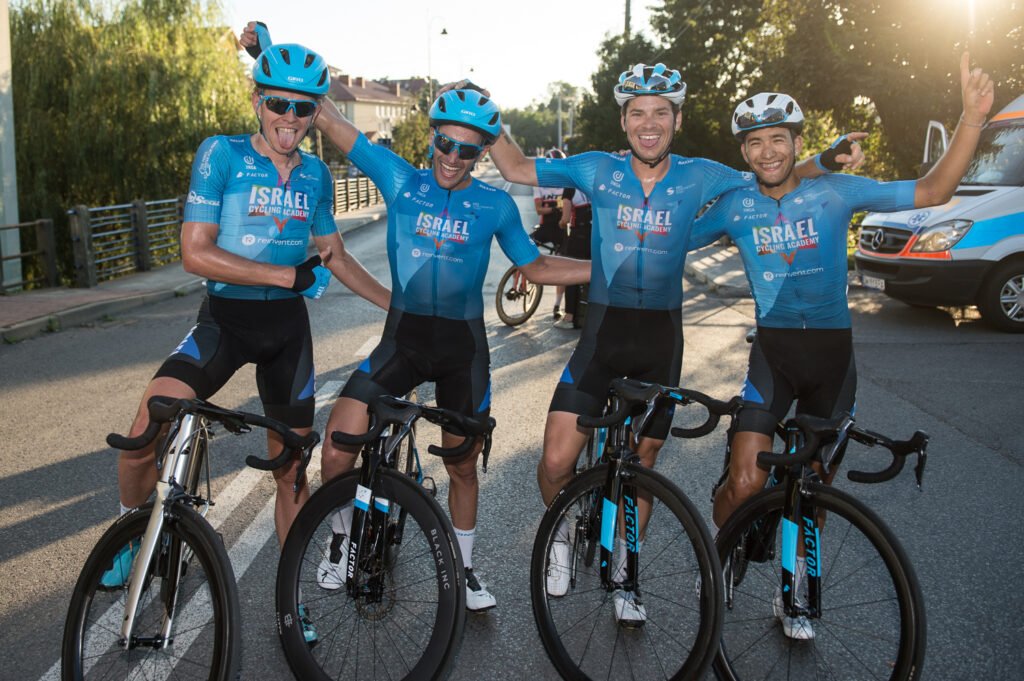
Development
Of course, on top of that, providing them with the training network of support and the guidance that we have is key.
We have really knowledgeable people within our World Tour team, Israel Start-Up Nation, and here, who can provide support and find solutions for them. Naturally, we want our riders to develop and take the next step to WT level within our organisation.
But, I think the end goal will be for the riders, the staff, and everyone to feel that it’s an environment where they can thrive from their support. Then we’ll hopefully get a name for ourselves as a team with a strong, supportive network, so when the guys are at a level where they are going good enough, getting other offers, they want to stay here. If we’re able to create that environment, then I think that that’s when we can be happy with what we’re doing.
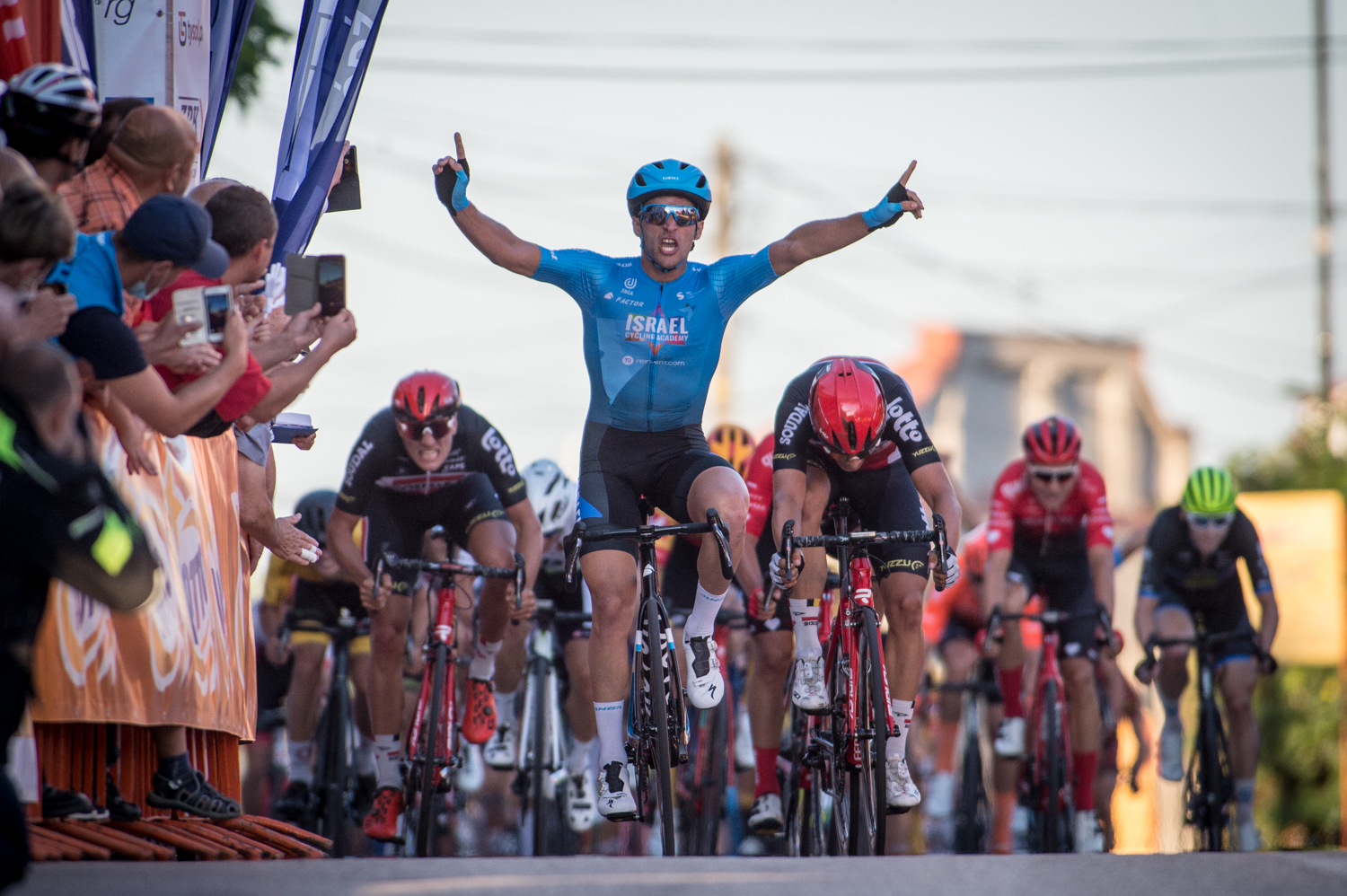
Ambition
Originally, we had several races in France lined up before COVID stopped the world! We’d planned to race the Tour of Normandy and Circuit des Ardennes, Tour of Bretagne, Rhone-Alps, and in the end, we did end up doing Savoie Mont Blanc. These are all very competitive races where usually the guys who win are picked up and could have a choice of teams following their result.
Now, many of the races in France have been postponed until next year, so we decided to target some races in Poland. And, to be honest, with the age of our riders and the level, these races are an excellent opportunity. They’re able to race and learn to race well at the front. We just confirmed when our sprinter Itamar Einhorn won big on the first stage of the Course de la Solidarité Olympique tour.
Looking back to August, when we went off to Savoie, we didn’t get fantastic results, even though it was a positive race, because we saw that we’ve got some incredible talent. For example, we have this speedy little guy, Yuvel, who showed there and on several occasions in recent events that he can get through no problem. So now, we can be confident for the future when we go off to bigger races like the baby Giro or to Tour de l’Avenir, we have guys who are on a level to be there and go after their chance on the stages that do suit them. That’s more or less this year.
Following this block in Poland, we’ll do the Piccolo Lombardiaat at the start of October, the U23 version of Lombardy. Then we’ll do Giro del Friuliwhich is still one of the premier U23 races in Italy, which will be a good test for them and lead into next year well.
In the future, we will do more U23 races and try to get into the baby Giro and those other key races… we’re down to do l’Avenir as the Israeli national team, which is exciting. Going forward, we’ll be able to get our riders to a level where they’re competitive and then go to those races to be competitive.
We’ve already signed a young kid from Queensland, Taj Jones, for next year. He’s a sprinter, so we plan to have him go to Normandy, try to win races. We’ll help him progress, so he’ll enter as a winner when he steps up to the World Tour. It’s proven successful in the past with big names, Fabio Jakobsen and even Marcel Kittel, a while back now. So I think that’s a critical thing, is that we can create winners.
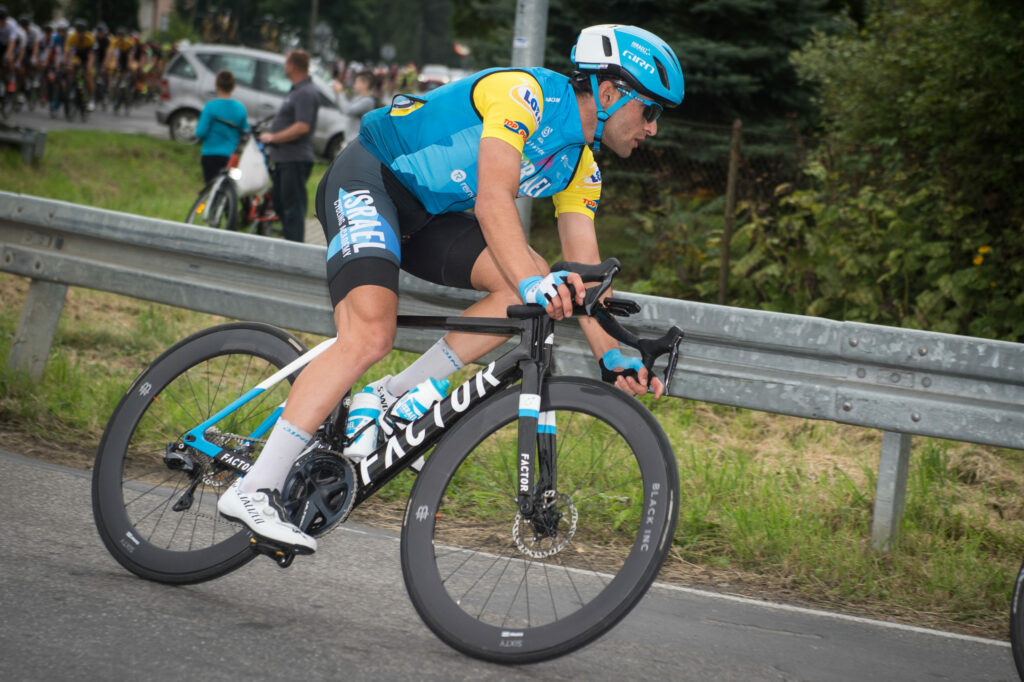
The ONE
The thing about the ONE is that it’s an excellent all-round bike. Not too heavy and definitely fast.
With an aero bike, you get a good bike full-stop. It’s fast, and we don’t really want to go down to the marginal gains. The VAM is, of course, far more suited to a mountain race. Still, if we’re talking about 400grams, actually with our current team’s race-style and the terrain we most commonly tackle at events, we’d prefer everyone to be on the same bike that’s good, functional, and a world-class aero bike. They’re certainly fighting on better weapons than most, let’s say!
For us, it’s super important that we have a culture where the guys are all on the same bike, they know it’s top of the line, they’re confident it’s quick, and they’re able to give it their best shot, and the ONE definitely provides more than that I would say.
As for the SLiCK, unfortunately, we haven’t been able to use the TT bikes much this year because there haven’t been any time trials. So they’re a little bit tucked away at the moment, but we can’t wait to whip them out when the opportunity arises.
For wheels, we’re using the Black Inc disc with the SIXTY on the front and a tubeless version of that, which is great because we have access to the tubeless tyres from Maxxis. So the fact that we can have specialist wheels that are hands down proven to be faster – that certainly gives us an added advantage when racing against the clock.
All the best to Zak and the Israel Cycling Academy for the remainder of their 2020 season, building in to what we are confident will be a fantastic 2021. Following their huge recent success in Poland, we look forward to tracking the team’s progress at upcoming events and wish them well as they continue to chase success.

© 2026 Factor Bikes. All rights reserved / Privacy Policy |Terms
